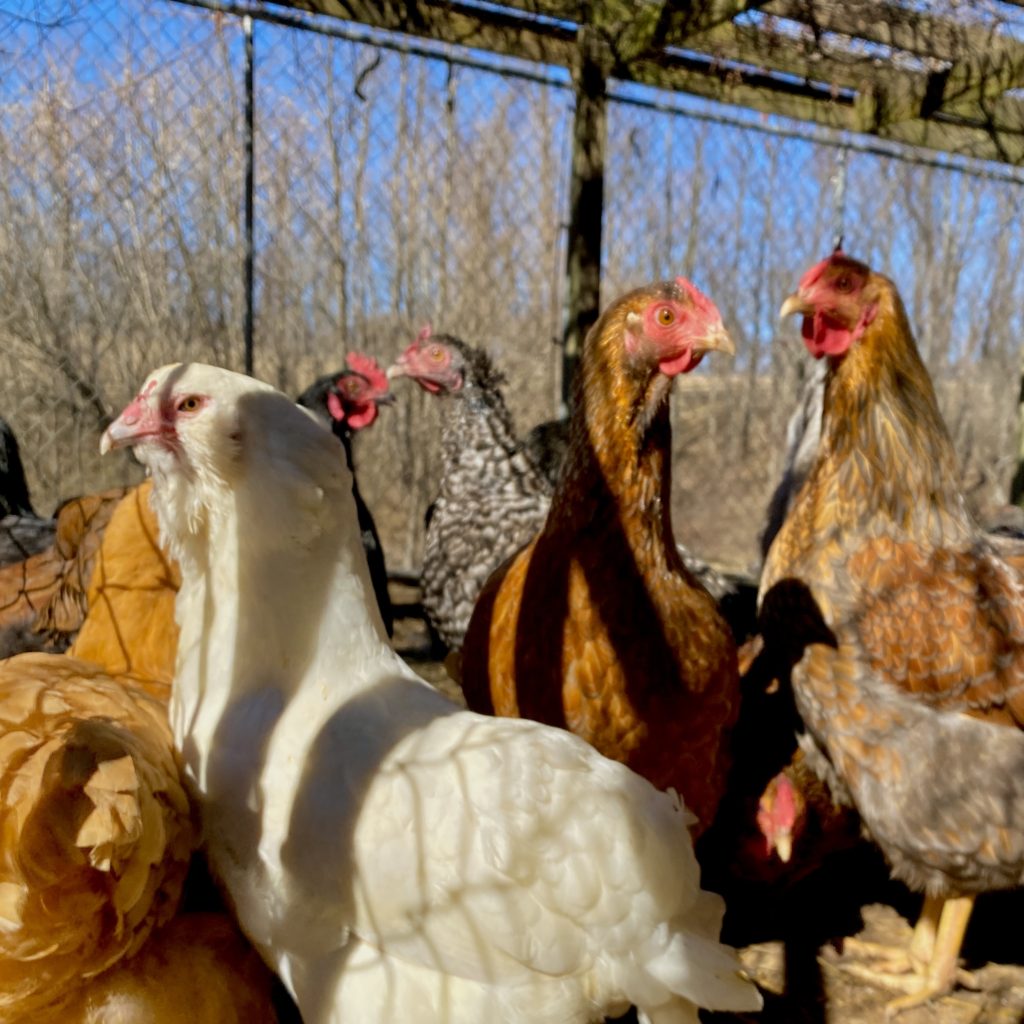We’ve had a backyard flock of chickens as long as we have lived here. When I first got them I got a bunch of books on back yard flocks and I took a mini-course at the Maryland Extension Service all about raising chickens. I even registered our flock. It’s not the same birds as 25 years ago, but it is the same pattern of practice.
Historic, Rare, Indigenous, Endangered breeds
There was a time in this country, before the age of industrialization, that there were hundreds of different kinds of chickens that were native to North America. And, thus a much greater diversity of birds in small flocks and farms across the country. Many breeds of chickens now are on the rare and endangered breeds listings of the American Livestock Conservancy. We choose to stock our farm with birds from those lists. Our small flock doesn’t actually change the status of the birds because we are just keeping them for eggs, but the farms that are working to bring back these breeds need to sell peeps in order to propagate the species and in this way we’re helping. Plus we love all the beautiful colors of the different chickens and all their beautiful colors of eggs: Dark brown, Brown, Tan, White, Blue and Green.
Free Range and Cage Free
Our chickens are “Cage Free because they do not live in cages or tightly confined spaces – this is as defined by the USDA. We provide our chickens with a protective habitat that has three kinds of covered spaces: a completely indoor space with laying boxes, and roaming area in the barn, and an outdoor roaming area that has netting and vines over head to keep out both birds or prey and four legged predators. It seems everything in nature eats a chicken!!! And, actually this gets into how we are defined as “free range” as well. Because our chickens can go in or out as they please with no restrictions on time in any of these places, they are also USDA free range.
Humanely raised & Antibiotics
There are No Antibiotics in the food stream (grains and scratch) or in their water. However, if a chicken got hurt or needed health care in some way, we would not deny it appropriate medical attention. If it needed antibiotics, we would just compost/dispose of the eggs during that period. We consider our attention to their social, medical and enviormental well being to far surpass the general definitions of “humanely raised” which is not a term that is well defined, even by the USDA. We can say some helpful things like, we do not choose to do any forced lighting for longer laying times, our chickens eat as much as they like, we give them fresh bedding, warm and dry shelter, and most importantly – we look after them.
Local & Organic
Our Eggs Are Not Organic. We feed our chickens human table scraps (this prevents the “organic” designation. However, we like to do this as part of our environmentally friendly farm plan in terms of reusing, reducing, recycling and composting. Plus the chickens love the scratch, investigate and hunting part of the table scraps – it’s what they do. Our chicken feed comes from a local grain mill in Westminster, Maryland.

